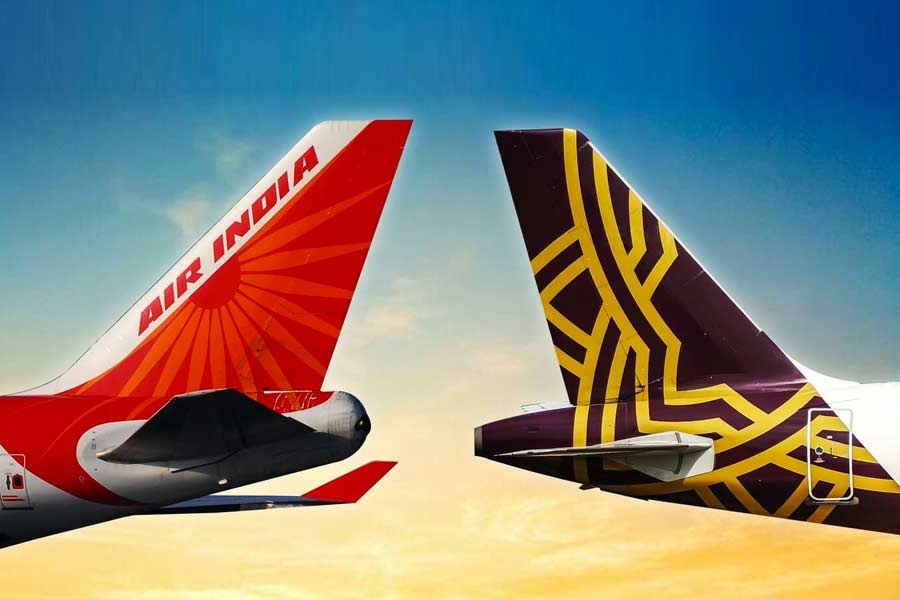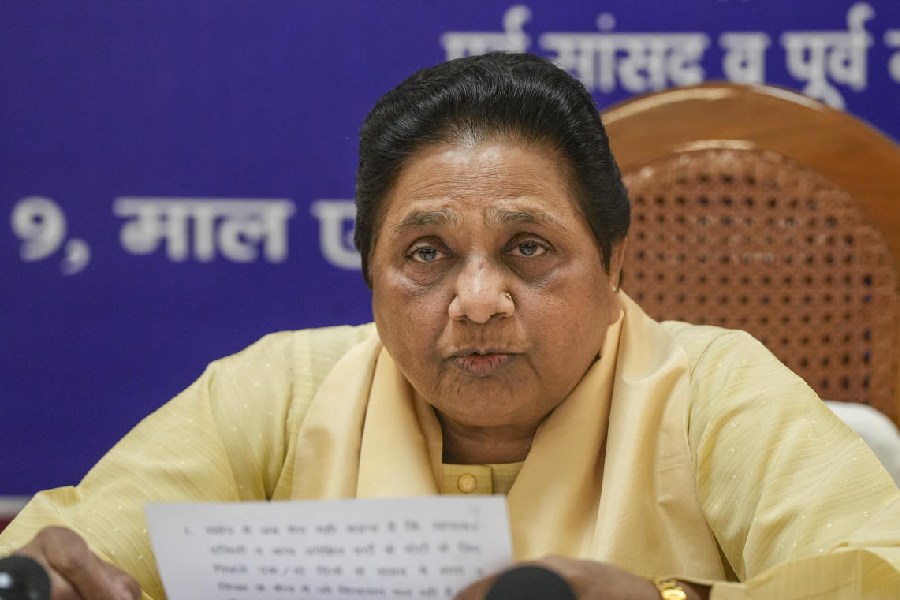Tata Sons Chairman N Chandrasekaran on Thursday said the best qualities of Vistara are being brought to Air India, which was in decline for a number of systemic reasons when Tatas took over the airline two years back, and fulfil the "sky high expectations".
"We are fully aware that expectations for the new Air India are sky high. We expect nothing less, and we expect to deliver nothing less," he said and asserted that the merged entity will be ready for the country's coming aviation revolution.
Nearly two years after announcing the merger, the integration of Vistara with Air India was completed on November 12 and Singapore Airlines now has a 25.1 per cent in the enlarged Air India.
Vistara was jointly owned by Tatas and Singapore Airlines.
"Given our ambitions, this merger should be seen as part of a journey. Different parts of the business were at different points of maturity when the merger commenced, so they will take time to fully align," Chandrasekaran said in a LinkedIn post.
While acknowledging that there is still more work to do and it is bringing Vistara's best qualities to the merger, Chandrasekaran said he is optimistic about the future of Air India.
Vistara was a well-regarded full service carrier.
Amid concerns in certain quarters on whether Vistara passengers will continue to get the same services as now since Air India, which is in the transformation phase, has been facing various service issues, it has been repeatedly emphasised that "Vistara in-flight experience is not going away" post-merger.
He said the merger is an important milestone in the commitment to transform Air India into a world-class global airline with an Indian heart.
According to him, mergers take time to play out and that the group has moved quickly, completing the process in two years while "keeping our eye on the ultimate goal: to realise AI's potential and turn it into a world-class global airline".
While mentioning about various initiatives being taken by the group in the aviation space, Chandrasekaran said the airline "we are strengthening today will be ready for India's coming aviation revolution".
Tatas acquired loss-making Air India from the government in January 2022 and since then, it has embarked on an ambitious transformation plan.
He said, "2 years ago, when we took over, AI was in decline for a number of systemic reasons. The turnaround it needed could not be solved simply by the allocation of resources, but by rethinking every aspect of AI's functioning from the ground up." Stressing that change had to be meaningful, not just in matters of appearance, he said in the last two years, they have moved swiftly to invest in people, processes, systems and technology.
"This merger, on the back of our Air Asia and Air India Express merger, has brought together 4 airlines to create 1 integrated airline group. We have much to look forward to.
"From its pre-privatisation size, the fleet has grown over 2.5X, and its 300 aircraft carry nearly 200,000 passengers across 100 global destinations every day," he said.
Marking a significant consolidation in the fast-growing Indian aviation space, Air India-Vistara merger has created an integrated airline, partly owned by Singapore Airlines, that will be flying over 1,20,000 passengers daily and connect more than 90 destinations.
Tatas has a long association with the airline industry dating back to the 1930s. Jehangir Ratanji Dadabhoy (JRD) Tata founded an airline in 1932 and named it Tata Airlines. In 1946, the aviation division of Tata Sons was listed as Air India and in 1953, Air India was nationalised.
"AI's new Airbus A350, which now flies to London and New York, gives us a glimpse of the future. As more new aircraft are delivered, and the legacy fleet is completely refitted, a new AI will take flight," Chandrasekaran said in the post.
Except for the headline, this story has not been edited by The Telegraph Online staff and has been published from a syndicated feed.










